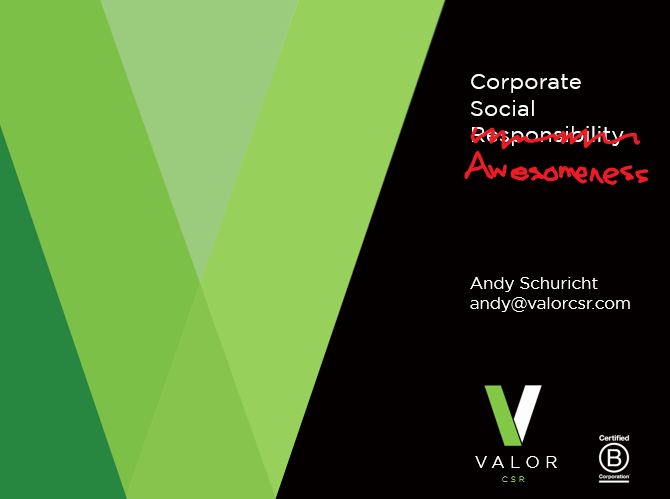One can be forgiven for being confused about corporate social responsibility. In the January 2015 issue of Harvard Business Review, some really smart people are questioning whether the Porter/Kramer model of identifying social aspects of your value chain is the right way to go. In what feels like a pandering-to-the-CEO kind of article, the authors say that there's a continuum of social impacts, so whatever CSR you do is fine as long as it's coordinated. And also, please pay our consulting company some money to coordinate it for you.
Requiem for Milton Friedman
Poor Milton Friedman. The Nobel Prize-winning economist and Chicago-school anti-Keynesian had a lot of good ideas, and was unmatched at explaining complex economic theories in a way that non-economists could understand. But he keeps getting yanked out of his grave and waved at anybody who even hints that business might have some responsibility to society.
Effective Philanthropy: Is it okay to just treat the symptom?
Often I will be talking to someone about charitable giving, and they will express frustration that, "it's just one thing after another. We keep giving money to treat the symptoms, but never really address the root cause." Or, with more funder jargon, "we only fund transformative projects."
While I understand not wanting to waste precious donations, I usually counter with this analogy: Saying that you don't want to donate to a food pantry because those people just get hungry again tomorrow is just like saying that you want to eliminate emergency rooms because those people will just keep having heart attacks and getting into car accidents.
Video: CSR 101
The Las Vegas Metro Chamber of Commerce asked us to present a webinar on Corporate Social Responsibility. If you have 20 minutes or so, the video replay is now available!
The Inside Story of Patagonia's Black Friday Promotion
Update on Whole Foods
Michael Porter: The case for letting business solve social problems
What does Whole Foods' shareholder trouble say about CSR?
Yesterday, Whole Foods Market Inc. announced that the firm is replacing five of its board members, likely in response to pressure from it’s second largest shareholder, Jana Partners LLC. Whole Foods stock has been underperforming, having lost roughly half its value since it’s 2013 peak of $65 per share. It’s enough to make one wonder if maybe this whole corporate social responsibility thing isn’t all it’s cracked up to be.
Kickstarter is setting a great example
Can making a bad gift hurt your company?
HBR.org recently added a Social Responsibility topic to the website, and it’s a great resource. Especially when it’s conclusions are overly broad or completely wrong. For example, “When Corporate Philanthropy Makes the Recipient Look Bad“, by Yuliya Shymko and Thomas Roulet, concludes that corporate sponsorship can damage the reputation of the causes they support. But really, can corporate philanthropy do harm?











